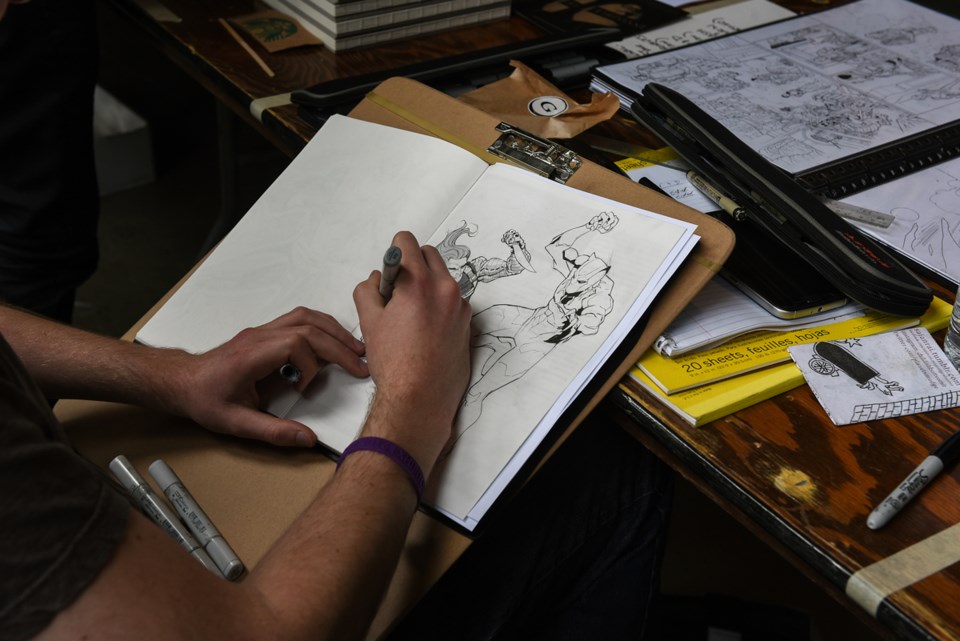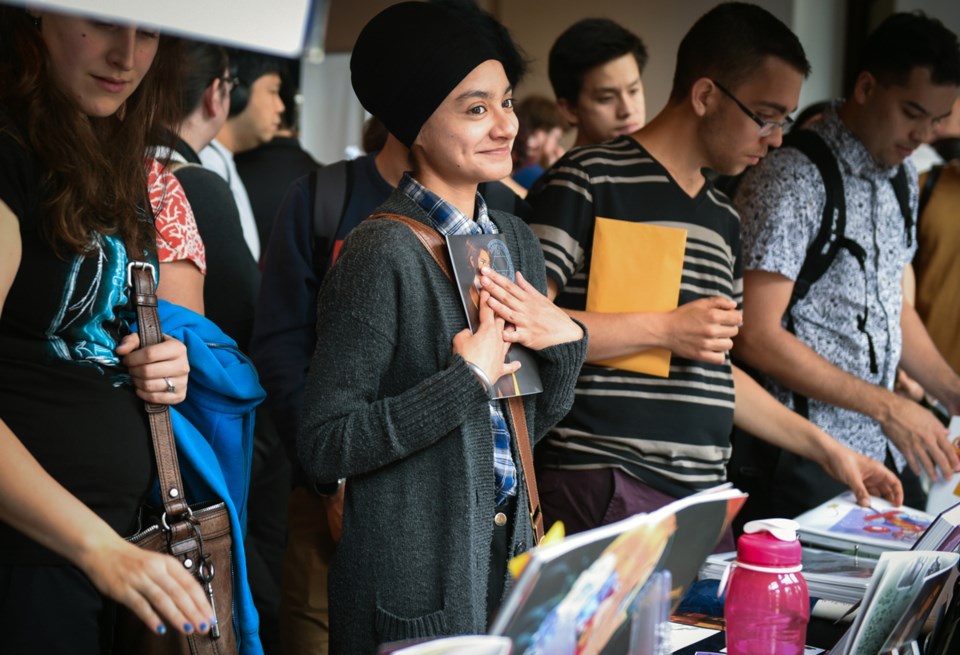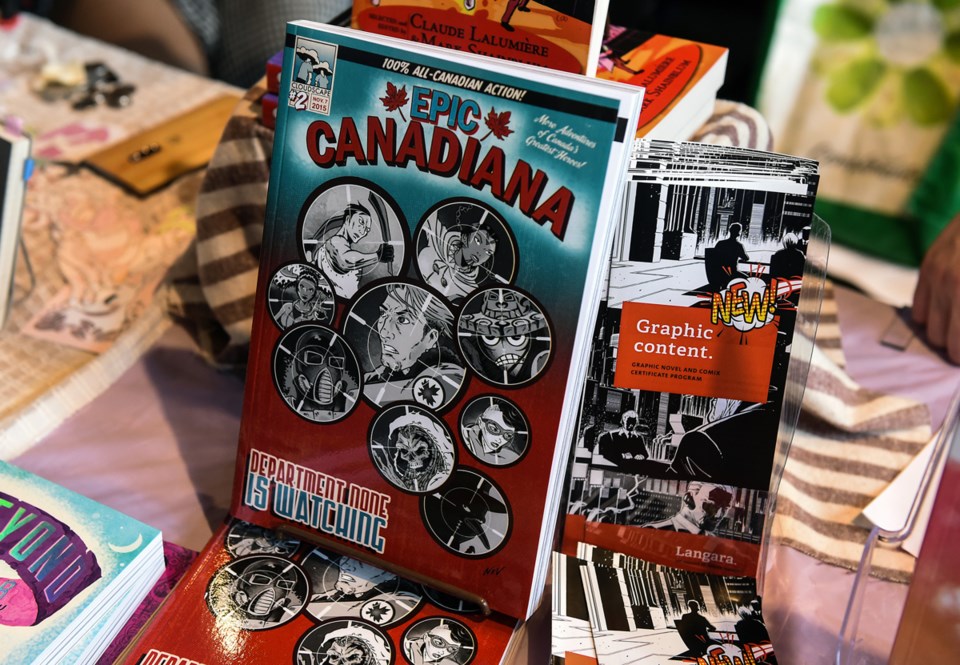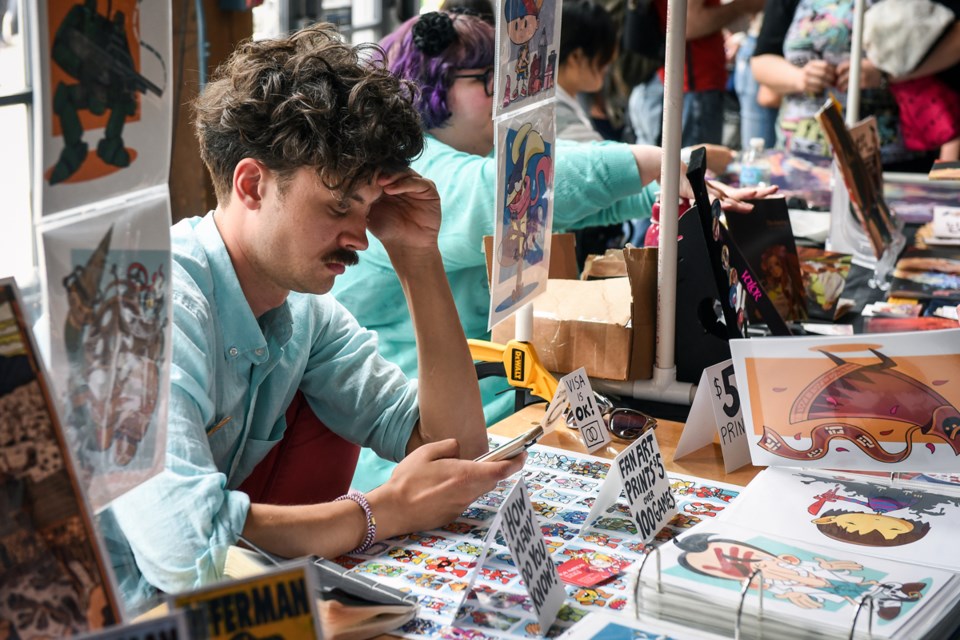Like the very thing that fuels the artwork itself, imagination is behind the inception of the Vancouver Comic Arts Festival.
Comic conventions are notoriously profit-orientated, understandably so given the industry’s boom during the better part of this decade; there’s a good reason Hollywood churns out one superhero movie after another. Shannon Campbell along with her webcomic artist husband Sam Logan, author of Sam & Fuzzy, attended many conventions around the continent and dreamed of doing something different in their home city.
That meant a convention that was free to the public to attend, including panels and workshops, as well as a convention that was also accessible to artists regardless of how established they are, and one that encouraged connection through socials for the artists. The festival, better known by the shortened version of its name —VanCAF — is run by a team of keen volunteers such as Noémi Pomerleau who coordinates those in the blue shirts, as well as handles all communication duties.

“Most comic conventions, particularly for the artists, can feel very stifling because they’re there to make money and not really to show off or appreciate the craft,” said Pomerleau as dozens formed a line outside the Roundhouse Community Centre Saturday afternoon to meet For Better or For Worse cartoonist Lynn Johnston. “That felt very alienating to Shannon so she decided to make a convention that was all about networking between the artists and connecting as easily as possible.”
Organizers charge just enough to cover costs of renting the community centre and promotion costs for the following year, a formula that works given this past weekend marked VanCAF’s fifth year with ever-increasing numbers. There were more than 250 exhibitors at this year’s festival, a number that has more than doubled since five years ago when there were 92. The crowds have matched that growth with 3,200 people attending in the first year and current numbers approaching 10k.

Comics are not a new phenomenon. While they have some origins in 1830s Europe, and even earlier in Japan, they took off in America during the 1930s with the publication of the first true comic book, which was a collection of newspaper comic strips and, in 1938, with the introduction of Superman. The industry has gone through pains and gains since, but its recent popularity has exploded for a couple reasons. The Internet means artists can reach out to an unlimited audience with the help of crowdsourcing technologies such as Patreon where they can receive funding from fans on a recurring basis to create. The explosion of the graphic novel also cracked open a whole new level of acceptance for readers, especially when Art Spiegelman’s Maus was the first graphic novel to win a Pulitzer Prize in 1992.
“I think a lot of people who started collecting comics as kids grew up and really never stopped,” said Pomerleau, who loved Archie comics as a kid. “I think that they also then taught their kids that comics were not something to be left in childhood, and that they were something that everybody read. It’s not just something to read in the newspapers, but people are writing stories about their entire lives. Maus, the autobiographical story about the Holocaust — that’s a fascinating book, it’s an amazing book and I think it really made it clear to people there was more to comics than superheroes. Not that superheroes aren’t amazing and super fun but you can literally tell any story in comic form.”
It’s also a wonderful communication tool, one that doesn’t leave out those who either struggle to read or are learning how to read, added Pomerleau. Spiegelman, himself, was said to have learned to read by looking at Batman comics.

“A picture is worth one thousand words, as the old saying goes,” said Pomerleau.
While VanCAF wasn’t without its special guests — inclduing Vancouver’s Brandon Graham and Kurtis Wiebe, who publish with Image Comics, and Faith Erin Hicks, best known for her web comic Demonology 101 — lesser known artists were also able to get their foot through VanCAF’s doors as table space was available for as low as $30.
“A lot of the people here write comics about living in the Lower Mainland,” said Pomerleau. “And that’s really cool. There’s not many venues for people who do that.”
[email protected]
@rebeccablissett



